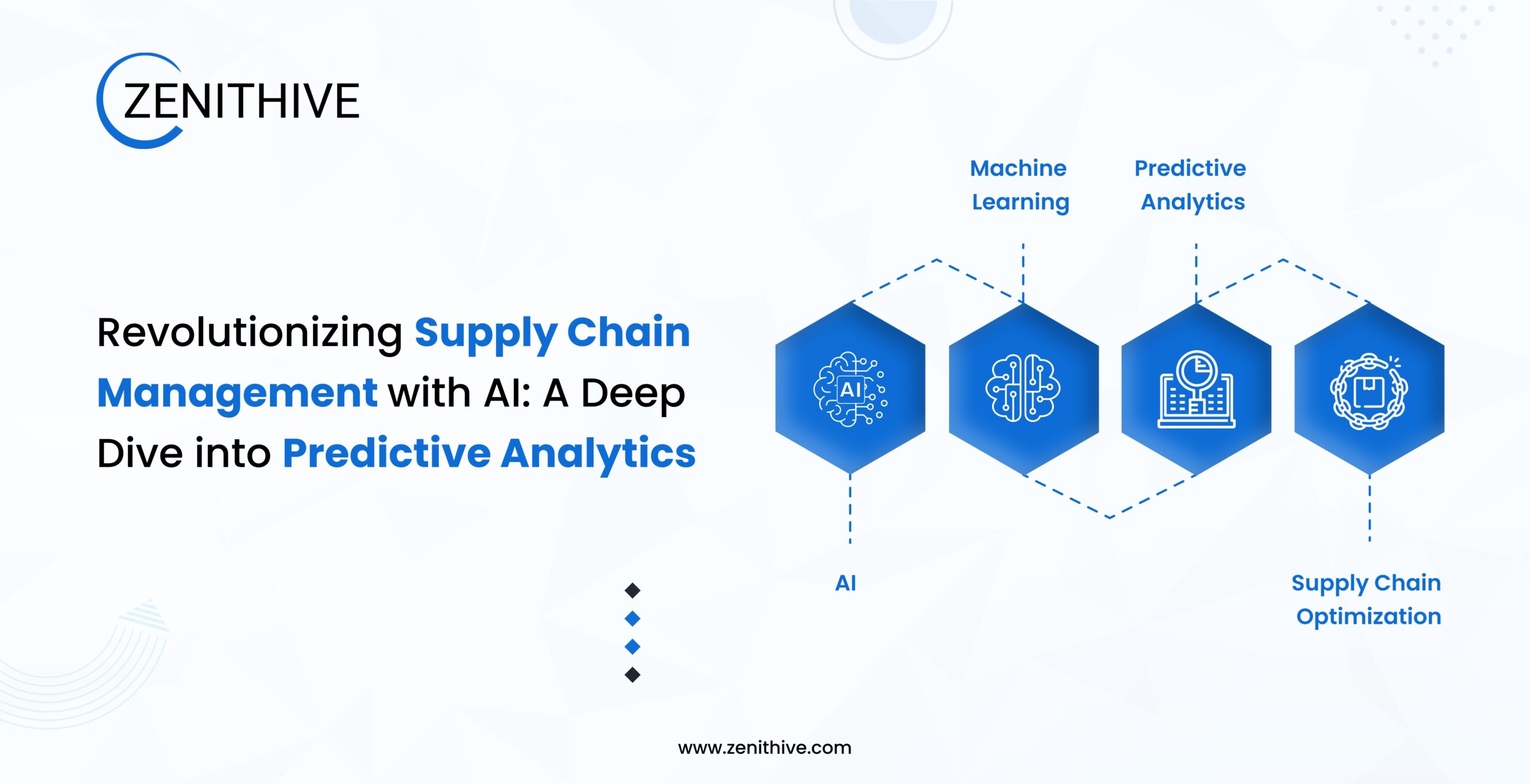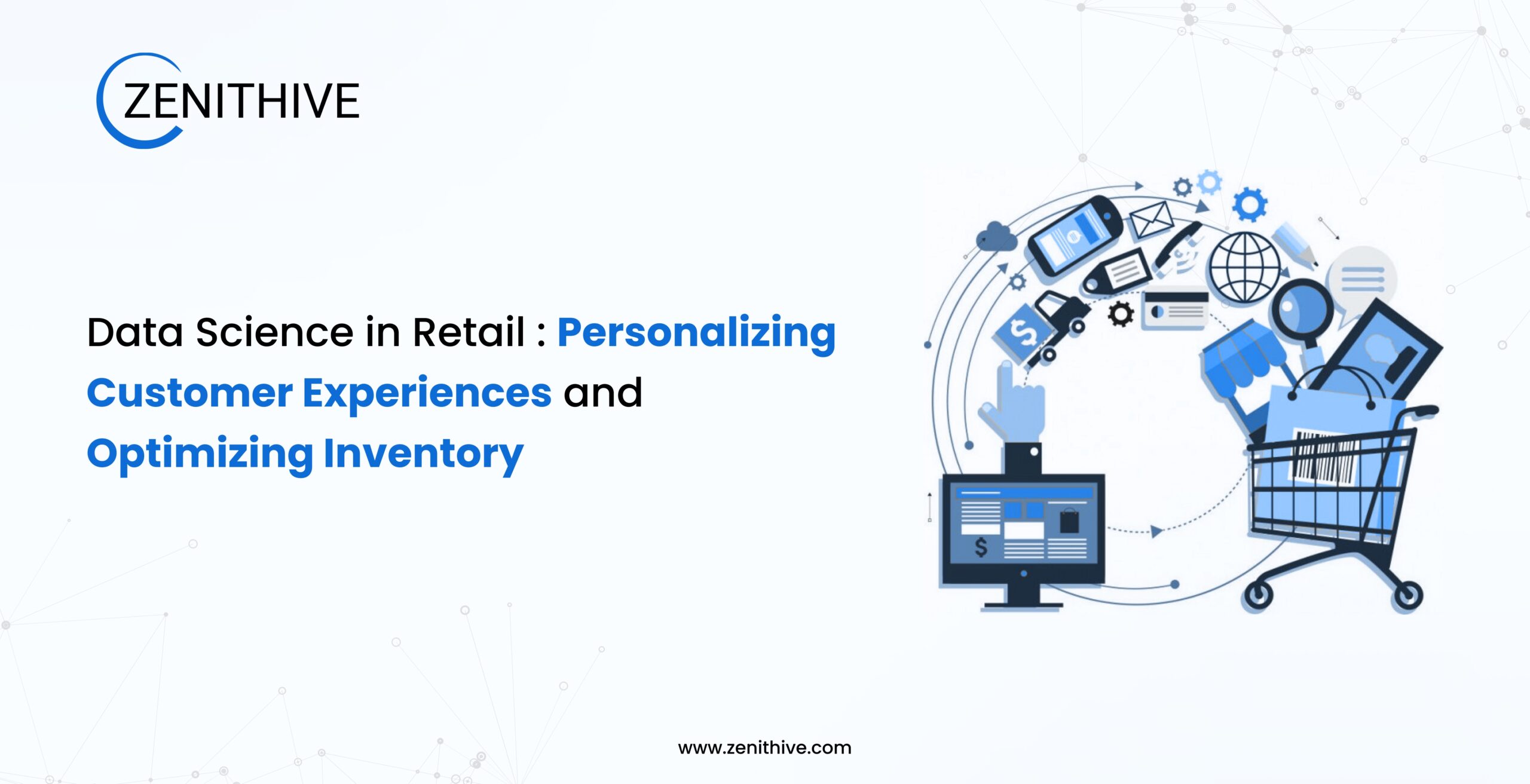Introduction
The integration of AI in Supply Chain Management is transforming the way businesses operate, offering great opportunities for efficiency, accuracy, and strategic decision-making. As supply chains become increasingly complex, the application of AI-driven Supply Chain Solutions is a necessity for staying competitive in today’s fast-paced market. This deep dive explores how AI and machine learning are revolutionizing supply chain operations, with a focus on predictive analytics and its impact on various industries. Through the lens of Gen AI & Data Science, we’ll examine how these technologies are reshaping the supply chain world.
The Evolution of Supply Chain Management
Traditional supply chain management approaches have long been plagued by inefficiencies, from inaccurate demand forecasting to suboptimal inventory management. These limitations often resulted in increased costs, stockouts, and customer dissatisfaction.
The advent of big data and advanced analytics marked a significant shift towards data-driven decision making in supply chain management. This transition laid the groundwork for the current revolution in AI Supply Chain Optimization, where machine learning algorithms can process vast amounts of data to derive actionable insights. The integration of Data Analytics has been crucial in this evolution, enabling businesses to extract valuable insights from their supply chain data.
AI and Machine Learning in Supply Chain: Core Technologies
The application of Machine Learning for Supply Chain encompasses several key technologies that address current challenges:
- Neural Networks: These algorithms excel at pattern recognition, making them ideal for demand forecasting and anomaly detection in supply chains.
- Natural Language Processing (NLP): NLP enables the analysis of unstructured data from sources like customer reviews and social media, providing valuable insights into market trends and consumer preferences.
- Computer Vision: This technology enhances quality control processes and enables automated inventory management in warehouses.
These core technologies, combined with advanced Data Analytics and Data Engineering, form the foundation of AI-powered Supply Chain Management, enabling businesses to make more informed decisions and respond quickly to market changes.
Predictive Analytics: A Game-Changer for Supply Chains
Predictive Analytics in Supply Chain represents a significant leap forward in supply chain management capabilities. By leveraging historical data and machine learning algorithms, predictive analytics can forecast future trends and potential disruptions with great accuracy. This process often involves sophisticated Data Warehousing solutions to store and manage the vast amounts of data required for accurate predictions.
Demand Forecasting
Predictive Analytics for Demand Forecasting allows businesses to anticipate future demand based on various factors such as historical sales data, market trends, and even external factors like weather patterns or economic indicators. This capability enables more efficient inventory management, reducing the risk of stockouts or overstock situations.
For instance, a retail company implementing predictive analytics for demand forecasting might see a 20-30% reduction in stockouts and a 15-20% decrease in excess inventory, resulting in significant cost savings and improved customer satisfaction. These improvements are often facilitated by ML And AI Solutions tailored to the specific needs of the business.
Inventory Management
AI-driven predictive analytics also revolutionizes inventory management by optimizing stock levels across multiple locations. By analyzing factors such as lead times, seasonality, and regional variations, AI Supply Chain Optimization tools can suggest optimal inventory levels for each SKU at each location, balancing the trade-off between inventory costs and service levels. This optimization process relies heavily on Data Engineering to ensure that the right data is available at the right time for decision-making.
AI-Driven Optimization Across the Supply Chain
The impact of AI extends beyond predictive analytics, offering optimization opportunities across the entire supply chain. Through Product Engineering and the application of AI, businesses can create customized solutions that address specific supply chain challenges:
Logistics and Distribution
AI in Logistics and Distribution is transforming transportation management and last-mile delivery. Machine learning algorithms can optimize routing, taking into account factors such as traffic patterns, weather conditions, and delivery time windows. This optimization can lead to significant reductions in transportation costs and improvements in on-time delivery performance.
Supplier Management
AI-powered tools can analyze supplier performance data, market conditions, and risk factors to optimize supplier selection and management. This capability enables businesses to build more resilient supply chains and mitigate risks associated with supplier disruptions. Generative AI can be particularly useful in this area, generating scenario analyzes to help businesses prepare for potential supply chain disruptions.
Best Practices for Implementing AI in Supply Chain Management
To successfully integrate AI into supply chain operations, organizations should consider the following best practices:
- Data Quality and Integration: Ensure high-quality, integrated data across all supply chain functions to feed AI algorithms effectively. This often requires robust Data Engineering practices.
- Start Small, Scale Fast: Begin with pilot projects in specific areas of the supply chain, then scale successful implementations across the organization. This approach allows for the refinement of ML And AI Solutions before full-scale deployment.
- Continuous Learning and Improvement: Regularly retrain AI models with new data to maintain accuracy and relevance. This process is facilitated by effective Data Warehousing and Data Analytics practices.
- Cross-functional Collaboration: Foster collaboration between supply chain professionals, data scientists, and IT teams to ensure successful AI implementation. This collaboration is crucial for effective Product Engineering in AI-driven supply chain solutions.
- Change Management: Invest in training and change management to ensure staff adoption and maximize the benefits of AI-driven tools. This includes educating staff on the capabilities and limitations of Generative AI and other AI technologies.
Future Outlook: The Road Ahead for AI in Supply Chains
As AI and machine learning technologies continue to evolve, we can expect to see even more advanced applications in supply chain management:
- Autonomous Supply Chains: AI-driven systems that can make decisions and take actions with minimal human intervention, further optimizing operations and reducing costs. These systems will rely heavily on advanced Data Engineering and ML And AI Solutions.
- Cognitive Supply Chains: Advanced AI systems that can reason, learn, and interact more naturally with human operators, providing more nuanced insights and recommendations. This development will be driven by advancements in Generative AI and natural language processing.
- Blockchain Integration: The combination of AI and blockchain technology could revolutionize supply chain transparency and traceability, enhancing trust and efficiency across the entire value chain. This integration will require sophisticated Data Analytics and Data Warehousing solutions to manage and analyze the vast amounts of data generated.
The future of AI-powered Supply Chain Management is bright, promising continued improvements in efficiency, agility, and resilience. As these technologies mature, businesses that embrace AI-driven solutions will be well-positioned to thrive in an increasingly complex and competitive global marketplace.
Take Action with Zenithive
Ready to revolutionize your supply chain with AI-powered insights and predictive analytics? Partner with Zenithive today to use the potential of Generative AI and Data Science. Let us help you drive operational efficiency, improve decision-making, and future-proof your business.
Reach out now to discover how our tailored AI solutions can transform your supply chain management.



